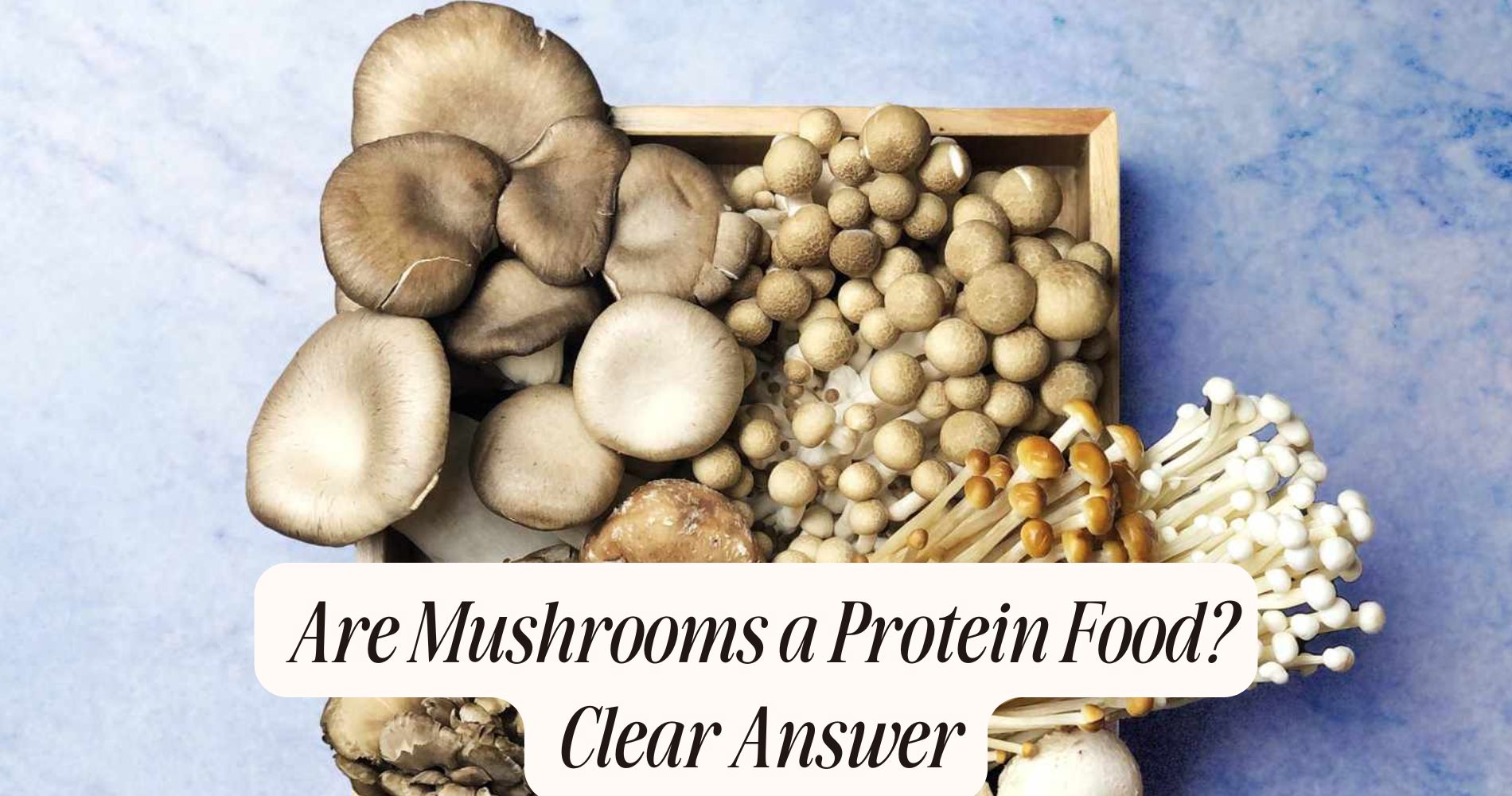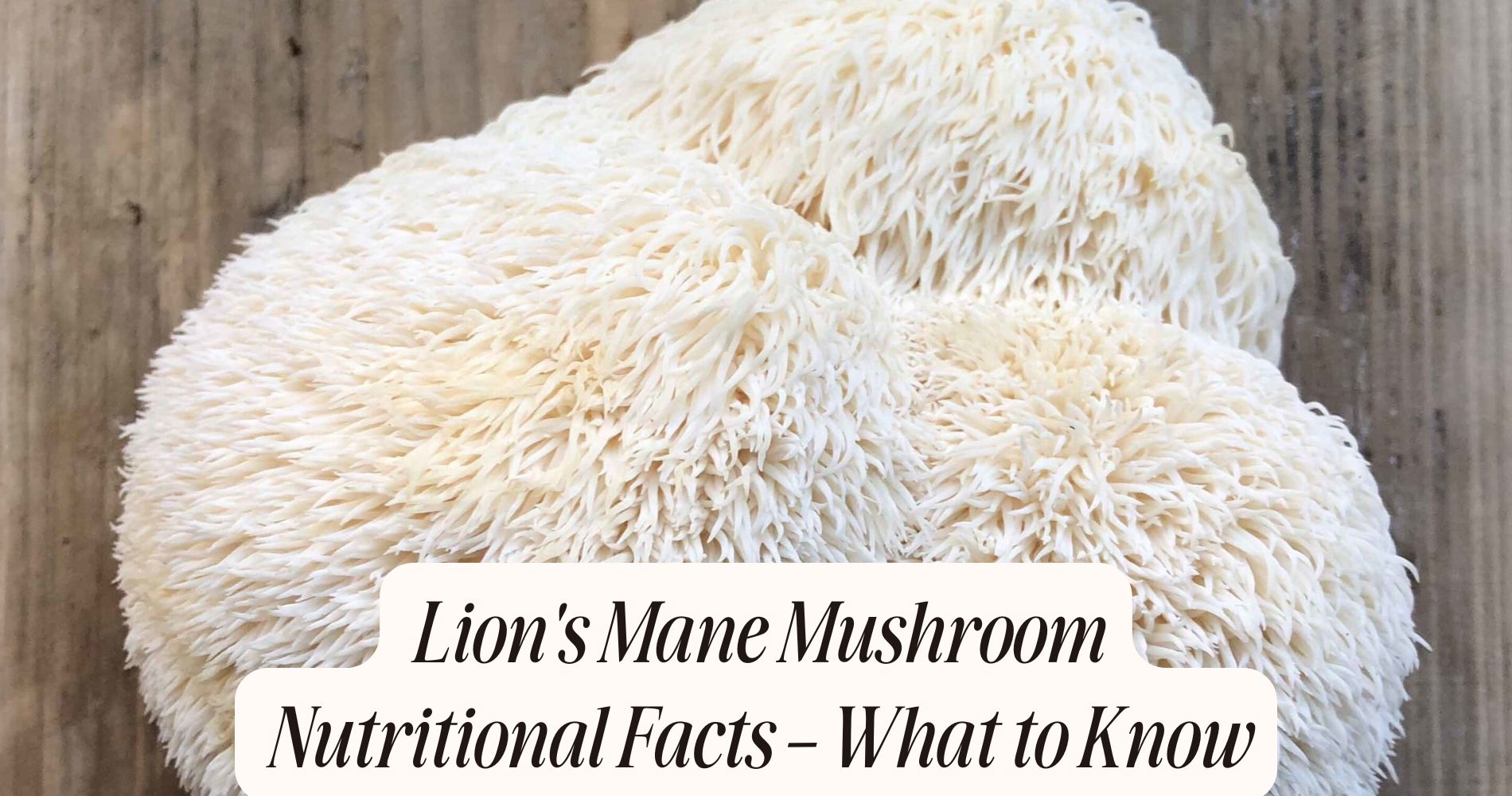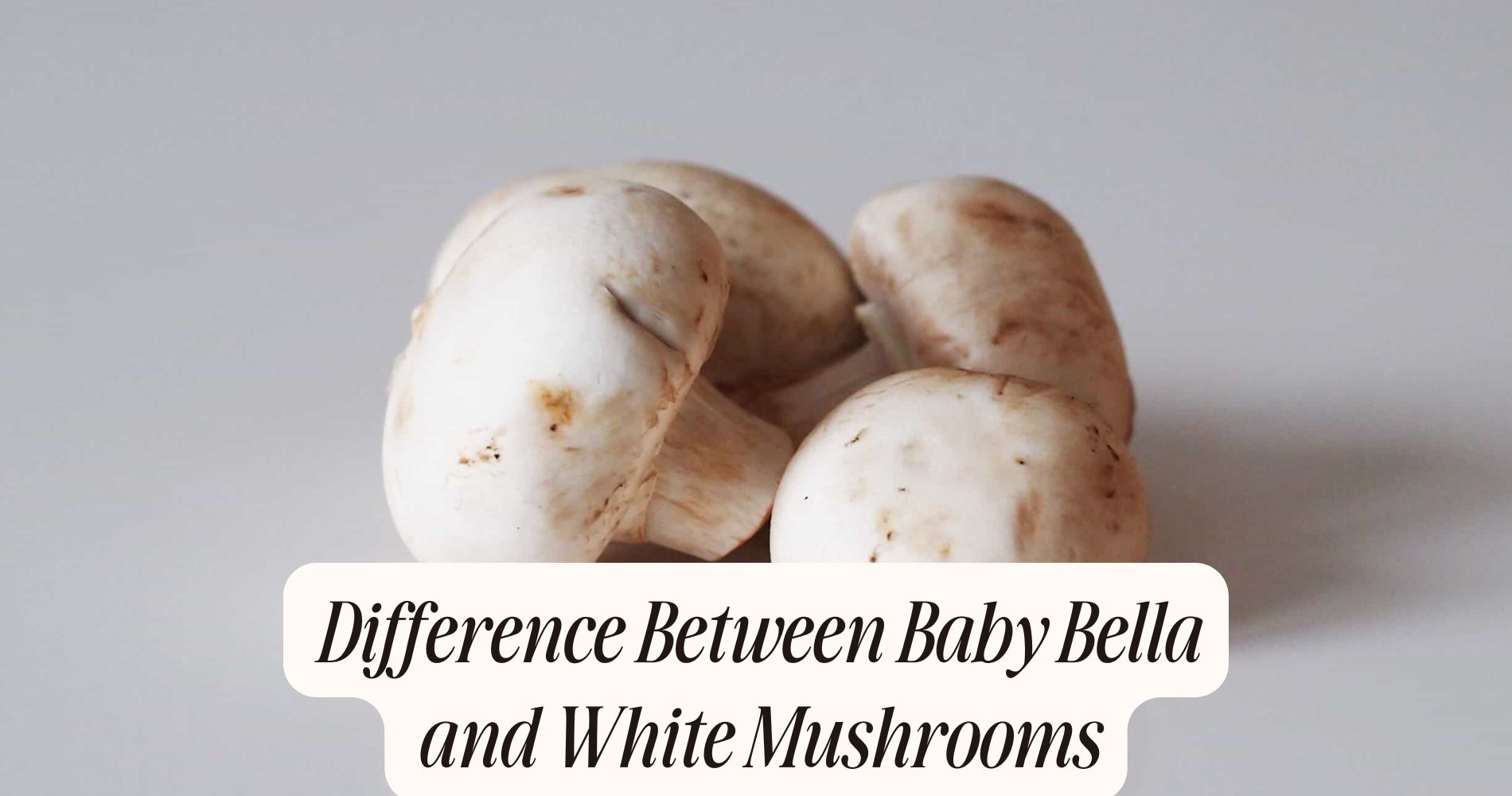
Are Mushrooms a Protein Food? Clear Answer
Are mushrooms a protein food? Mushrooms aren’t considered a high-protein food—they only provide about 2–4 grams of protein per 100 grams, far less than animal products or legumes. While they’re nutrient-dense and offer B vitamins, minerals, and unique antioxidants, mushrooms don’t supply complete proteins. You’ll need other protein-rich foods to meet your daily needs. Still, they complement plant-based meals and bring valuable nutrients. Explore how mushrooms fit into a balanced, protein-conscious diet and discover creative ways to enjoy their benefits.
Defining What Makes a Food High in Protein
When you’re deciding if a food is high in protein, it helps to look at both the amount of protein per serving and its quality. You should consider not just the grams of protein, but also how well your body can use that protein—a concept called protein digestibility. Foods with higher digestibility offer amino acids your body can readily absorb and use.

Animal products like meat and dairy traditionally score high, but many people now choose plant based alternatives. For these, protein content and digestibility can vary. For example, soy and lentils are well-known for being both protein-rich and highly digestible among plant sources.
To define a food as high in protein, nutrition experts often set a threshold: at least 10–20% of its calories should come from protein.
Nutritional Profile of Mushrooms
Although mushrooms are often grouped with vegetables, their nutritional profile sets them apart. When you examine fungal nutrition, you'll find that mushrooms are low in calories and fat, but they offer a modest amount of protein—typically about 2 to 4 grams per 100 grams, depending on the variety.
They’re rich in B vitamins like riboflavin, niacin, and pantothenic acid, as well as minerals such as selenium, copper, and potassium.
What truly distinguishes mushrooms is their unique content of bioactive compounds, particularly mushroom antioxidants like ergothioneine and glutathione. These antioxidants help protect your cells from oxidative stress.
While mushrooms aren’t a significant source of carbohydrates or fats, their nutrient density and presence of rare compounds make them a standout in the world of food nutrition.

Comparing Mushroom Protein to Animal and Plant Sources
While mushrooms do contain protein, their levels and amino acid profiles differ markedly from those found in animal and most plant sources.
If you compare a serving of mushrooms to the same amount of chicken or lentils, you’ll notice mushrooms offer less total protein—usually around 2-4 grams per 100 grams, versus 20-25 grams in animal sources or 9 grams in lentils.
Mushroom proteins also lack some essential amino acids, making them an incomplete protein.
The mycelium importance in mushroom cultivation can influence protein content, as different cultivation methods and strains affect nutritional outcomes.
Still, mushrooms do provide valuable nutrients and fiber, and when combined with other protein-rich foods, they contribute positively to your diet.
They’re best viewed as a complementary, not primary, protein source.
Common Types of Mushrooms and Their Protein Content
Several popular mushrooms—such as white button, cremini, portobello, shiitake, and oyster—vary in their protein content, typically offering between 2 to 4 grams per 100 grams when fresh.
When you examine fungus classification, you’ll see these mushrooms belong to the Agaricus, Lentinula, and Pleurotus genera, each bringing subtle differences in nutrient profiles.

White button mushrooms, the most widely consumed through global mushroom cultivation, have about 3 grams of protein per 100 grams.
Cremini and portobello, both Agaricus bisporus at different maturity stages, offer similar protein levels.
Shiitake and oyster mushrooms slightly exceed white buttons, often reaching the upper end of the protein range.
Although mushrooms aren’t protein powerhouses, they provide modest amounts and contribute other important nutrients, like fiber, B vitamins, and minerals.
Can Mushrooms Replace Meat for Protein?
Given their modest protein content, you might wonder if mushrooms can realistically replace meat as a source of protein in your diet.
From a nutritional perspective, mushrooms contain far less protein than meat; for example, one cup of cooked mushrooms provides about 3 grams of protein, while the same amount of cooked chicken breast offers around 35 grams.
Although improvements in mushroom cultivation techniques have enhanced yield and nutritional consistency, mushrooms alone won’t meet your protein needs if you’re seeking a direct meat substitute.
However, mushrooms excel at flavor enhancement, making them an excellent addition to plant-based dishes.
You can combine mushrooms with beans, lentils, or tofu to boost overall protein intake.
Health Benefits of Including Mushrooms in Your Diet
How can mushrooms support your health beyond their modest protein content? Mushrooms offer a unique blend of nutrients thanks to their fungal nutrition profile. They provide B vitamins such as riboflavin, niacin, and pantothenic acid, which help maintain energy levels and promote a healthy nervous system.
You’ll also find important minerals like selenium, copper, and potassium in mushrooms, supporting immune function and heart health. Their antioxidants, including ergothioneine and glutathione, help protect your cells from oxidative stress.
Mushroom cultivation techniques often enhance vitamin D content when exposed to light, making mushrooms a rare plant-based source of this nutrient.
With low calories and high fiber, mushrooms can aid weight management and support digestive health. Including mushrooms in your diet may lower cholesterol and support overall well-being.
Creative Ways to Use Mushrooms in High-Protein Meals
While mushrooms aren't a major source of protein on their own, you can easily pair them with protein-rich foods to boost the nutritional value of your meals. Try adding sautéed mushrooms to omelets or scrambled eggs for a nutrient-dense breakfast.
Incorporate mushrooms into stir-fries with tofu, chicken, or lean beef—this not only increases protein content but also leverages mushrooms’ natural flavor enhancement. Thanks to advances in mushroom cultivation, you can now find a wide range of varieties like shiitake, oyster, and cremini in most stores, allowing for diverse textures and flavors.

Use finely chopped mushrooms in turkey or lentil burgers to add moisture and micronutrients, or blend them into bean-based chili for extra fiber and a savory, umami-rich profile.
Recommendations for a Balanced Protein Intake
Although mushrooms offer valuable micronutrients and flavor, they shouldn't serve as your primary protein source. If you're aiming for balanced protein intake, focus on foods with complete amino acid profiles, such as lean meats, eggs, dairy, legumes, or soy products.
When comparing fungi vs vegetables, mushrooms have slightly higher protein content than most vegetables, but they still fall short of meeting daily protein requirements on their own.
For optimal protein absorption, combine diverse protein sources throughout your meals. Pairing plant-based proteins with grains or legumes can help ensure you get all essential amino acids.
Mushrooms enhance meal variety and provide dietary fiber, but you’ll need more concentrated protein sources to support muscle maintenance, immune function, and overall health.
Aim to include a variety of protein-rich foods in your diet.
Upgrade Your Routine with Super Mushroom Gummies
If you're exploring the role of mushrooms in your diet, why not make it effortless and delicious? Well Gummies' SUPER MUSHROOM GUMMIES pack the power of 10 functional mushrooms into a chewable, wild-berry flavored gummy. Designed to support energy, focus, immunity, and overall balance, they’re perfect for anyone looking to fuel both brain and body—without any prep, powders, or pills. No jitters, no crash—just clean, plant-based support whenever you need it.
Frequently Asked Questions
Are Mushrooms Safe to Eat Raw?
You can eat many mushrooms raw, but always check nutrition facts and possible toxins. Some types, like button mushrooms, are safe in salads, but cooking boosts nutrient absorption. Explore culinary uses, but research each variety for safety.
Can You Be Allergic to Mushrooms?
You can develop a mushroom allergy, which may cause allergic reactions like skin rashes, swelling, or digestive issues. Scientific studies confirm that mushroom allergies exist, so you should avoid mushrooms if you experience these symptoms.
Do Mushrooms Contain Any Vitamins or Minerals?
You should know the mushroom nutrient profile includes several essential vitamins and minerals. Vitamin content in mushrooms features B vitamins like riboflavin and niacin, plus minerals such as selenium, copper, and potassium, supporting your overall health.
How Should Mushrooms Be Stored for Freshness?
To maximize freshness, you should use refrigeration techniques by storing mushrooms in a paper bag in the fridge. This method helps regulate moisture and extends their storage duration, preserving essential nutrients for up to one week.
Are Wild Mushrooms Safe to Forage and Eat?
If you want to forage wild mushrooms, follow strict foraging guidelines and use reliable mushroom identification tips. Many wild mushrooms are toxic. Evidence shows misidentification can cause severe illness. Only eat wild mushrooms when you’re absolutely certain they’re safe.
Conclusion
While mushrooms offer unique nutrients and some protein, you shouldn’t rely on them as your main protein source. Compared to animal and most plant proteins, mushrooms contain markedly less—usually about 2–3 grams per cup. Still, they add valuable fiber, vitamins, and minerals to your meals. If you’re aiming for a balanced, high-protein diet, use mushrooms to complement other protein-rich foods rather than replace them. This way, you’ll meet your nutrient needs more effectively.




